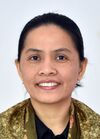Since 1996, UEM´s constitution describes UEM as a communion in which members grow together as a “worshipping, learning and serving communion” (…), “striving for justice” (…) in “a world torn apart”.
In 2023, 27 years after the formulation of these terms, the world is still “torn apart”, although globalization and the ongoing developments of internationalization are visible in every society.
As in 1996, the members of UEM are “united in mission”, and they express this through UEM´s structure (equality of all members), through the way decisions are made (participation of all members) and in all programs (planned jointly, regionally and internationally). This is currently translated afresh into the details of UEM´s work. An innovation process has been started which reflects, in which way UEM´s identity remains innovative and relevant in addressing experienced challenges. The innovation process looks at learning programs, personnel exchange, staff structure, funding and finance, partnership, diaconal services/development, advocacy/human rights, evangelism/theology and the organizational structure of UEM and asks, how UEM´s internationality is implemented consistently.
Learning is central for the churches´ identity and has always been part of mission. Learning in UEM has five main components:
The provision of quality education and training in areas and systems with insufficient access to educational systems and to people who do not have full educational opportunities, with the aim of overcoming discrimination, exclusion and injustice
Joint and reciprocal learning through studying, living, working and worshipping together, through sharing life and exchanging on habits and traditions
Learning about themes and issues in global dimensions
Learning on the basis of shared faith
Developing global networks of practice and knowledge
The current process “Global Learning in Ecumenical Perspective” (“GLEP”) focusses especially on structures, formats and methods of learning. Contemporary concepts like “Global Learning”, “Education for Sustainable Development” or “Global Citizenship Education” concentrate mainly on contents of learning (the “WHAT” of Global Learning). GLEP does not contradict these, but stresses another dimension, making the “HOW” – the formats, methods, organization - the guiding principle of Global Learning. How programs are organized and done speaks about their intentions and goals. GLEP ensures that the way themes are chosen, goals are set, learners groups are composed, instructors are identified and tasked is internationally jointly done, allowing a variety of perspectives. Methods ensure diversity. Programs are planned and done jointly by internationally composed teams.
GLEP learning programs use the global ecumenical nature of UEM and provide chances for new ways of internationally joint learning. This is their contribution to reach the Social Development Goals and attain sustainability.
GLOBAL in UEM means:
Looking at life worldwide, in the UEM members and other churches, non member churches, other religious communities and non believing communities. Globality includes other contexts in the direct vicinity as well as far away. Global also means to be aware that in “a world torn apart” many people are excluded from learning opportunities by poverty, violent conflicts, discrimination and marginalization driven by economic interests.
We are convinced that globality as the surpassing of borders of all kinds, provides realism and is the only possible perspective for learning today.
LEARNING in UEM means:
A fundamental human right (“Learning for All”). Learning inclusively by seeking ways to overcome global and local social, economic and cultural borders.
A possibility in all phases of life (“Lifelong Learning”).
Learning is understood as holistic, formal and informal, in academia and praxis, in encounters and in living together, and as an issue for advocacy. Learning is the gaining and sharpening of competences that enable us to fulfill our mission in this world.
We are convinced that mission means constant movements of learning.
ECUMENICAL PERSPECTIVE in UEM means:
on the basis of shared faith, not according to only one single denomination or doctrine, but to all denominations represented in UEM, and in dialog and diapraxis with other denominations and religions.
We are convinced that joint faith, though it is not an ultimate condition for global learning, gives global learning a basis and wider perspectives.
GLEP provides a structural frame for existing approaches of joint international learning.
GLEP is a movement, a philosophy, an attitude. To implement GLEP means to experiment, to look for ways of consistent joint learning.
GLEP is to contribute to the efforts to overcome global and local social, economic and cultural borders so that learning is guaranteed as a human right for all people.
GLEP means joint thinking, joint researching, joint reflecting and joint action.
GLEP thinks of “we” in inclusive ways, not of “we” and “they”.
GLEP develops attitudes of curiosity and interest in the contradictions and complexities which become visible in diverse settings.
GLEP principles are applicable to all themes. The themes taken up in educational programs are determined through prior enquiry processes from all UEM members about issues and themes of actual relevance. The positions and needs of all involved are taken up.
According to GELP, a learning program has to follow four steps:
1. The program design has to take globality serious. Globality in the UEM context means that it is not limited to looking at one region, country or context only, but several of them, even surpassing the borders of UEM-membership.
2. Subjects and themes to be learnt have to be of relevance to members in Africa, Asia and Europe. Detailed situational analyses in all participating regions shall inform the curriculum development team on what the current situation in the different contexts is concerning the topic at hand. The curriculum development therefore must consider and employ expertise in all three region, both content wise and structurally, by formation of curriculum development teams, that consist of experts on the said matter from all the three regions.
3. Resources used in facilitating learning, both human and material have to reflect also the global richness of UEM, and be of global relevance and applicability.
4. The curriculum development team, the teaching team and the learners´ group must be composed internationally and in diversity.
A separate document provides frameworks on how to organize GLEP in learning programs, detailing steps to be taken to ensure that the learning process is global and ecumenical, providing evaluation criteria and practical guidelines.
July 2019


IBAN: DE45 3506 0190 0009 0909 08
SWIFT/BIC: GENODED1DKD
![]() spenden@vemission.org
spenden@vemission.org
![]() 0202-89004-195
0202-89004-195
![]() info@vemission.org
info@vemission.org
![]() 0202-89004-0
0202-89004-0
![]() presse@vemission.org
presse@vemission.org
![]() 0202-89004-135
0202-89004-135